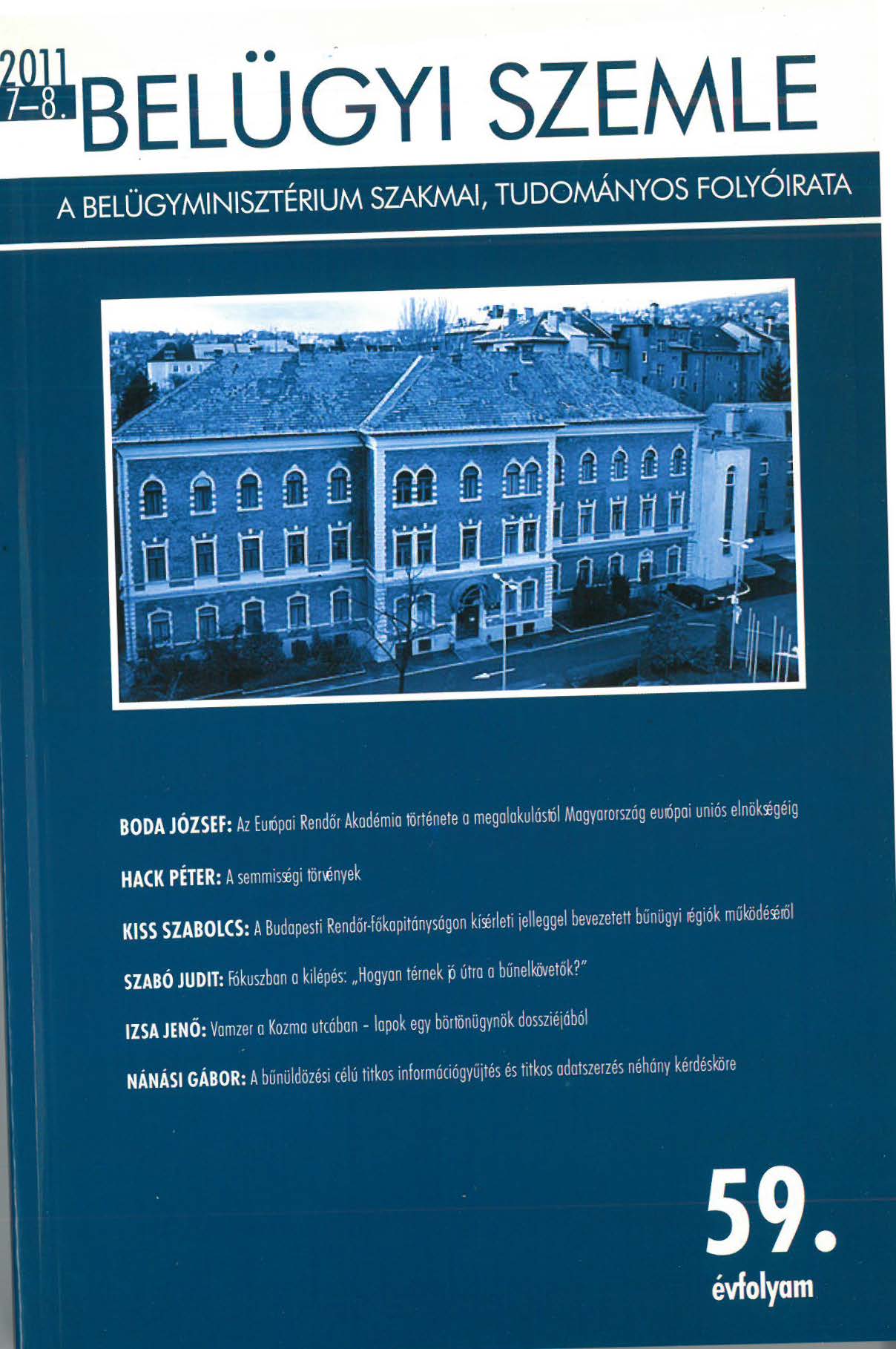Abstract
The study examines the Hungarian practice of covert information gathering and data collection for criminal investigation purposes, with special attention to the constitutional framework, the legal background, and the problems arising during practical application. The author analyses the differences between legal instruments, the changes in their regulation, as well as the conditions for the admissibility of the obtained evidence in criminal proceedings.
References
.

This work is licensed under a Creative Commons Attribution-NonCommercial-NoDerivatives 4.0 International License.
Copyright (c) 2025 Academic Journal of Internal Affairs
Downloads
Download data is not yet available.
